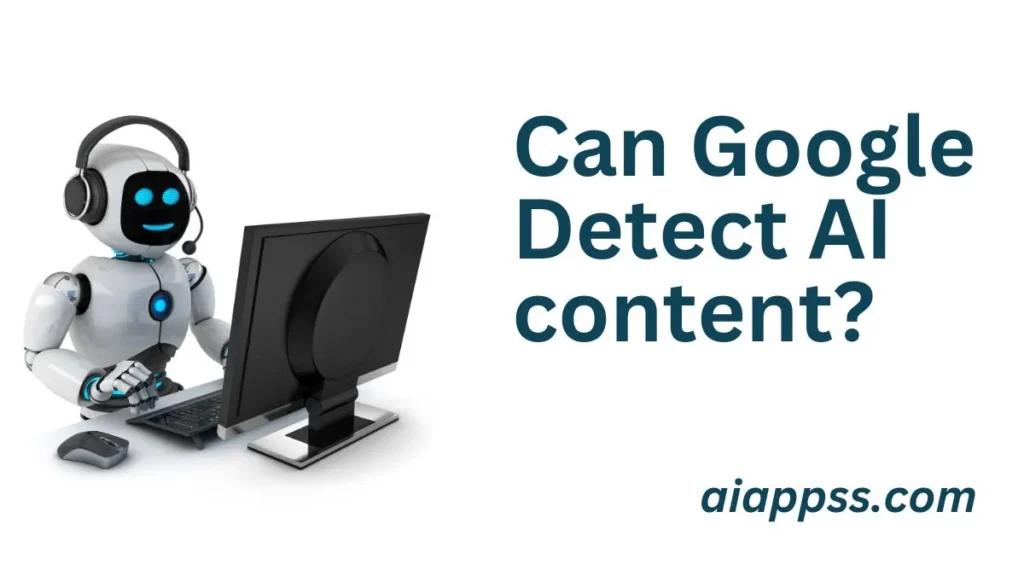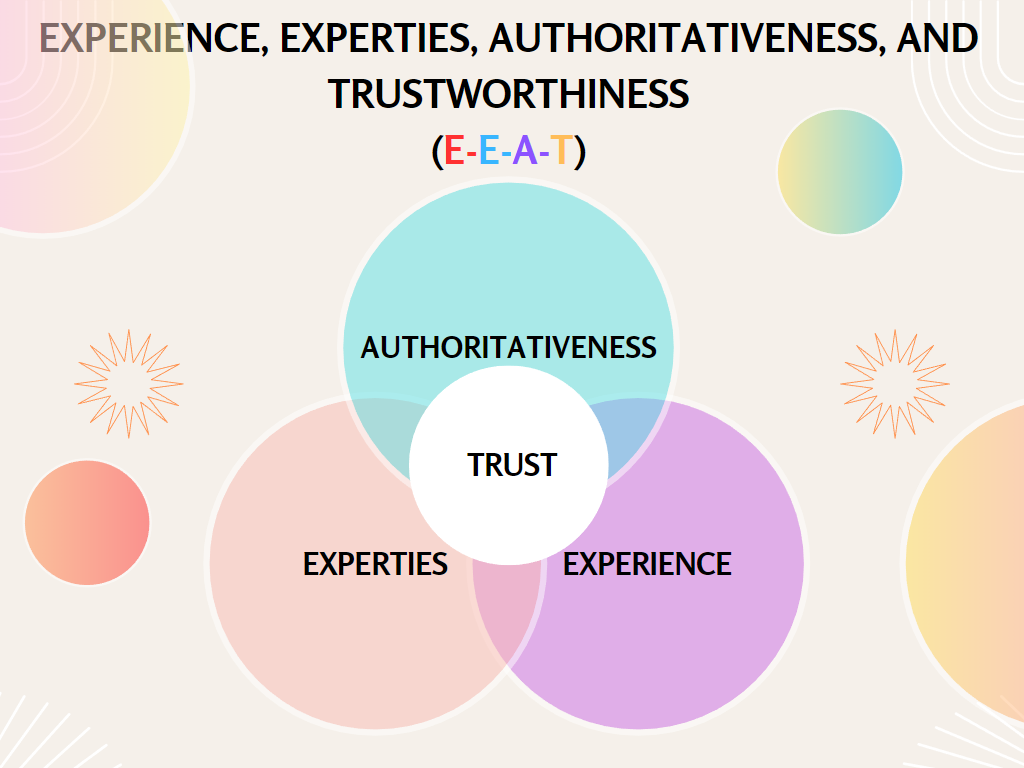Can Google Detect AI Content? | How E-E-A-T works
Today we will see if there is any chance that Google can detect AI content.
In the Machine learning and artificial intelligence era, everything is very fast so as content writing. when we think of AI apps one thing comes in our is ChatGPT. content writing, copywriting, and all other sorts of information are accessible easily.
Let’s see how Google detects AI content written with ChatGPT and other content-writing AI apps.
As AI (Artificial Intelligence) is evolving continuously it is getting harder and harder to tell the difference between information produced by humans and that produced by AI algorithms. The answer is ‘YES’ but sometimes it doesn’t get detected by Google,
Is it the Drawback?
Let’s see…
What exactly is AI Content Detection?
Recognizing man-made intelligence-produced content alludes to the method involved with distinguishing content that has been made by computerized reasoning calculations or created via robotized frameworks, instead of being written by people.
Man-made content is regularly delivered utilizing AI procedures, where calculations are prepared on enormous datasets to produce text that emulates human composition.
Identifying man-made intelligence content includes dissecting different parts of the substance, for example, language designs, sentence structure, style, tone, and inventiveness, to decide whether it is probably going to have been created by an artificial intelligence framework. This is finished utilizing complex calculations and procedures that can distinguish examples and characteristics in the text.
Web crawlers, long-range informal communication destinations, and other substance stages to view the recognizable proof of simulated intelligence material in a serious way since it might influence the dependability and nature of the substance that is shown to shoppers.
It supports guaranteeing that client-created material is focused on and that clients can trust the credibility, exactness, and reliability of the substance they access.
As calculations get further developed and can deliver language that is hard to separate from human-composed material, simulated intelligence produced content might turn out to be increasingly more challenging to perceive. This presents troubles and calls for nonstop work to expand the accuracy and productivity of regards artificial intelligence-created material.
Also read – AI content Detector Chrome extension
How AI Detector Detects the AI Content?
AI detectors analyze information to determine if it was produced by artificial intelligence (AI) or automated systems using a variety of approaches and algorithms.

Sentence structure, syntax, and vocabulary are only a few examples of language patterns that AI detectors can examine the stuff produced by AI that displays unique patterns or anomalies that don’t appear in stuff created by humans.
AI-generated content, for instance, could not flow naturally during conversations, contain cliches, or use inconsistent syntax. Analysis of the content’s style and tone by AI detectors is possible.
A constant tone and style that are not characteristic of human writing may be present in articles produced by AI. For instance, it could lack human-written content characteristics like personalization, emotional subtlety, or subjective viewpoints.
AI-based plagiarism detectors may search for instances of copied or unoriginal content. AI-generated material may closely resemble current content without proper acknowledgment since AI algorithms are trained on huge databases of previous content.
AI detectors can examine the information from different websites to spot patterns and highlight stuff that might not be original.
What google Algorithm see in the content is – EEAT
Let’s see what is the meaning of EEAT in content.
Is E-E-A-T imporant in AI Content Detection?
“Experience, Expertise, Authoritativeness, and Trustworthiness” (frequently condensed as E-A-T) is a bunch of models that are utilized via web crawlers, especially Google, to survey the quality and believability of content. E-A-T is significant to consider deciding how well a site or page positions in list items.
Experience
Alludes to the information, abilities, and skill of the substance designer or site proprietor. It assesses the capabilities and foundation of the creator or site corresponding to the subject of the substance. For example, satisfied made by specialists with significant accreditations or industry experience might be viewed as more solid and legitimate.
Expertise
Relates to the breadth and depth of understanding in a given topic. High levels of experience are likely to make content more reputable and reliable. This may be evaluated by looking at the reliability and correctness of the sources listed as well as the information given.
Authoritativeness
Refers to the standing and standing of the writer or website in a certain sector or business. A website or author is frequently seen as more authoritative if they have a solid reputation, confirmed credentials, and a track record of creating trustworthy information.
Trustworthiness
Refers to the content’s general trustworthiness and dependability. Reliable sources are used to support trustworthy material, which also offers accurate and current information and is free of any components that can be misconstrued as deceitful.

E-A-T is one of the positioning variables utilized by Google and other web indexes to assess the power and worth of data.
Google search central content on EEAT explains much better.
Sites with high E-A-T are bound to seem higher in query items than those with low E-A-T, which might bring about fines or more regrettable rankings.
Website owners and content producers may concentrate on creating accurate, thoroughly researched information that is supported by credible sources. Higher E-E-A-T scores can also result from developing a solid reputation, proving one’s knowledge, and winning over users’ and the larger online community’s trust.
Website owners and content producers may concentrate on creating accurate, thoroughly researched information that is supported by credible sources. Higher E-E-A-T scores can also result from developing a solid reputation, proving one’s knowledge, and winning over users’ and the larger online community’s trust.
Can Google Detect AI Written Content?
As an artificial intelligence language model, It doesn’t approach Google’s particular calculations or restrictive data, and It can’t give data on the specific components or calculations Google uses to recognize simulated intelligence-created content.
Google might utilize a mix of strategies to recognize simulated intelligence-created content, for example, AI calculations, Natural Language Processing (NLP), design acknowledgment, and other computational techniques. These calculations might dissect different elements, including language designs, composing style, metadata, and different highlights that can demonstrate whether the content is created by artificial intelligence or composed by people.
Google’s employee John Mueller and other top employees state that Google has no problem with AI content. If it’s readable and understandable by humans then the content is good and Google has no problem with that.
The main point is – Content should be written for humans not for search engines or bots.
They appear to be able to determine if AI text is badly written and not verified by a real human before publication. It will be more difficult for Google to discover if it is done well, edited, and corrected by a person before publication.
FAQs
How does Google recognize/detect AI content?
Google may employ machine learning algorithms, natural language processing (NLP), pattern recognition, and other computational approaches to examine language patterns, writing style, metadata, and other characteristics that can indicate whether material is created by AI or written by humans.
Can Google recognize all AI-generated content accurately?
The involution and intricacy of the man-made intelligence innovation used can impact the effectiveness of distinguishing man-made intelligence-produced content. High-level computer-based intelligence-produced content that closely looks like human composing might be harder to recognize than easier computer-based intelligence-created content.
Can employing AI-generated content affect SEO or search rankings?
Yes, employing AI-generated content irresponsibly, such as for spamming or manipulating search rankings, can violate Google’s standards and result in penalties such as lower ranks or removal from search results.
